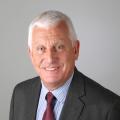
TWO senior hospital consultants have said the Covid crisis has highlighted the huge structural problems with both the NHS and social care system in England.
Mike Wheble and Rob Howell of University Hospitals Dorset say there has never been a proper workforce plan for the NHS from government and that underlying issues will never be resolved without one.
They spoke on the day the brief critical incident was lifted at Poole and Bournemouth hospitals and as former health secretary Jeremy Hunt, chair of the Commons Health and Social Care Committee, said a new report will look at how the pandemic has caused a backlog for the NHS.
He said: “The one thing people are not talking about is a shortage of funding. What they’re talking about is not being able to find the staff to do the work.
“And that’s why we say in this report the biggest gap at the moment in the Government’s plans to deal with this huge six million waiting list is a lack of doctors and nurses and a lack of a plan to find those doctors and nurses."
He said 4,000 more doctors and 17,000 more nurses were needed to deal with this backlog, and independent forecasts to make sure enough are being trained.
Mr Wheble, a consultant in acute medicine at Royal Bournemouth told the Echo there were ”permanent staffing shortfalls” in every major speciality that went way beyond the problems caused by the Omicron variant of coronavirus.
He said: “Capacity is the big challenge. Covid hasn’t ballooned at the moment.
"Business coming through the front door is high but it is winter. But Covid is certainly complicating things."
He said he had “never known anything like” the 200 medically fit for discharge patients currently in beds across the two hospitals.
“That feels like it’s just making our job very difficult. Everybody is swamped out in the community but it’s the perfect storm.
“Effectively we have got four wards of patients who really don’t need to be in the building. That’s a lot of bed being blocked for me - two of those wards are effectively the size of my unit - the acute medical unit and in the nicest possible way I am sure it is the same in surgery - partly because I am taking over surgical beds."
Mr Wheble said: “I can’t honestly see how these numbers are going to come down anytime soon because I don’t see how we can magic up capacity from nothing in those community systems and that’s what worries me. They don’t have the funding, they don’t have the staff.”
Consultant surgeon Rob Howell said current issues were not particularly Covid related.
“This is not really a Covid problem it’s a healthcare problem. Yes Omnicron is in the news but it’s winter pressures that are hitting us.
“Covid is highlighting these underlying issues. Around 200 patients sitting here in an acute hospital when they don’t need to be here is just unacceptable, and that will be mirrored all over the country.
“Just throwing money at issue is also not the answer because the NHS is primarily about workforce and if you haven’t got the workforce you can’t do the work.
“There is only so much you can do in-house to put things right. The big things that need to be done are political and we really, really need to get the social care system sorted.”
Mr Wheble added: “When Covid is over, the underlying problems will still be there. In my lifetime as a medic, workforce planning in the NHS of any description has never been taken seriously.
“It’s done on election cycles and that’s too short a timeframe. We need something like an Office for Budget Responsibility for the NHS outside of direct government.
“In my speciality of acute medicine, over 50 per cent of consultant vacancies go unappointed because there aren’t the people to apply for them.
“That seems to be a growing trends in all specialties. It used to be that there were five surgeons lined up for each surgical job but that’s not the case any more and that’s before we start talking about the holes in nursing and that sort of thing.
“There has got to be a plan for the next ten years to think about our staffing. It’s been getting more challenging year on year on year. Has Covid made things more difficult, of course. But these problems were always coming because we have just never had national workforce planning for the NHS.”



Comments: Our rules
We want our comments to be a lively and valuable part of our community - a place where readers can debate and engage with the most important local issues. The ability to comment on our stories is a privilege, not a right, however, and that privilege may be withdrawn if it is abused or misused.
Please report any comments that break our rules.
Read the rules hereLast Updated:
Report this comment Cancel